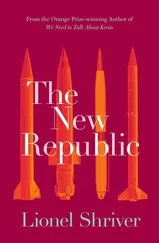“But even if we did decide to take him in,” said Fletcher, “ and we haven’t —the visit couldn’t be open-ended.”
“It can’t be conditional, either.” If I was going to think that way, and I preferred not to, I had amassed, as of the previous couple of years, most of the power in our household. I disliked having power, and in ordinary circumstances rather hoped that if I never exercised this baffling clout it would go away. For once, however, the novel agency was useful. “Saying, ‘only for three days,’” I said, “or ‘only for a week.’ That doesn’t sound gracious, but as if we can only stand his company for a limited period of time.”
“Isn’t that the truth?” Fletcher said curtly, leaving the dishes to me. “I’m going for a ride.”
Of course he was going for a ride. He rode his bicycle for hours almost every day—or one of his bicycles, since he had four, competing with unsold coffee tables for limited space in a basement that had looked so cavernous when we moved in. Neither of us ever mentioned it, but I’d bought him those bikes. Technically, we pooled our resources. But when one party contributes the contents of an eyedropper and the other Lake Michigan, “pooling” doesn’t seem the right word, quite.
Ever since my husband had started cycling obsessively, I wouldn’t go near my own ten-speed clunker, by then gathering dust with deflated tires. The neglect was of my choosing, but didn’t feel that way. It was as if he’d stolen my bike. Were I ever to have dragged the thing upstairs, greased the chain, and wended down the road, slowly and not very far, he’d have made fun of me. I preferred to skip it.
Every time Fletcher went for a ride I got annoyed. How could he stand the boredom? He’d come home some afternoons in a state of brisk satisfaction that his time had improved, usually by a few seconds. Churning the same route through the cornfields to the river a smidgeon faster was of no earthly consequence to anyone. He was forty-six, and soon the computer on his handlebars would simply track his disappointment in himself. I didn’t like to think that I begrudged him something all his own, but he had the furniture making, which was private enough. He used those rides to shut me out.
I felt so guilty about this annoyance that I went to lengths to disguise it, forcing myself to suggest he go for a ride in order, say, to get out of his system some frustration with Tanner, “since it makes you feel so much better.” But a too-lilting falsetto gave my falsity away. Most confounding: he liked that the cycling annoyed me.
Clearly, I was a bad wife. Aerobic jaunts would lengthen his life. After Cleo, his ex, went so bizarrely off the deep end, Fletcher had grown ever more consumed with control, and as obsessions went the cycling was harmless. Between exercise and his stringent diet, my husband had lost the tiny roll at his middle for which my own mashed potatoes and muffins had been to blame. Yet I’d cherished that little roll, which had softened him in a larger sense. By soliciting forgiveness, the gentle excess had seemed also to dispense it.
I required that forgiveness in some quantity. During the previous three years I must have put on about twenty pounds (I was loath to stand on a scale and confront an exact number). When running Breadbasket I’d been pretty thin. In the catering trade, food has a way of becoming repulsive; a vat of cream cheese is indistinguishable from a batch of plaster. But in my subsequent endeavor, the Mexicans on my staff were forever bringing trays of tamales and enchiladas into work. I’d cooked on my feet; now I sat in my office. Thus I’d come to squander an appalling proportion of my mental time on empty vows to cut down to one meal a day, or on fruitless self-castigation over a second stuffed pepper at lunch. Surely on some unconscious, high-frequency level other people could hear the squeal of this humiliating hamster wheel in my head, a piercing shrill that emitted from every other woman I passed in the aisles of Hy-Vee.
It wasn’t fair, but I blamed Fletcher for those twenty pounds. I may have been a quiet sort who hugged the sidelines, but that didn’t mean I was a pushover. I was the kind of person at whom you could finger-wag and tut-tut-tut, who wouldn’t talk back, who would submit to all manner of browbeating while seeming to take it all in like a good little camper, and you’d walk away and think, There, that’s put her straight , and then I’d sift off and blithely do whatever you’d just told me not to.
That defiant streak had backfired when I started noshing pointedly between meals on whatever entire food group Fletcher had recently disavowed. (The repudiation of cheese was deadly. The day after that announcement, I returned from the supermarket with half a wheel of Brie.) His spurning of the very dishes that had entranced him during our courtship and early marriage—banana cream pie, homemade deep-dish pizza—hurt my feelings. I shouldn’t have conflated love and food, but that’s a mistake women have made for centuries, so why should I be any different? I missed cooking, too, which I found therapeutic. Hence I still baked an occasional coconut layer cake, which Fletcher would boycott, and even the kids would avoid as their father glowered nearby. Well, someone had to eat that cake. Fatally, I felt sorry for it.
We had at least evolved a ritual compromise. From each contraband confection, I cut a one-bite amuse-bouche , arranging it with a dab of whipped cream, a garnish of mint, and a couple of pristine fresh raspberries on a large china dessert plate with a sparkling silver fork. This I would leave in the middle of our prep island, the way kids put out cookies for Santa, then make myself scarce. Fletcher would never take the bait while I was watching; still, it meant more to me than I can say that these illicit samplers of what he now deemed “toxic” vanished within the hour.
Strictly speaking, as a nutritional Nazi my husband had grown more attractive, but I’d been attracted to him before. Besides, a pointiness was now more pronounced. He had a high forehead and long oval face; shorn to a prickly furze to minimize the balding, his head was bullet-shaped. His long, strong nose in profile looked like a checkmark, and the wire-rimmed glasses added a professorial sharpness. Some strict, censorious quality had entered the triangular geometry of his wide shoulders and newly narrow waist, so that simply being in his physical presence made me feel chided.
As I collected our dishes, it bothered me that Fletcher hadn’t stayed to tidy the kitchen, which wasn’t like him. Commonly we dispatched cleanup with the interlocking fluidity of synchronized swimmers. We were at our best working side by side—neither of us understood or relished “leisure” time—and my fondest memories were of just this sort of cleanup on a grand scale. When we first started dating, on nights I’d catered a big buffet Fletcher would install Tanner and Cody in sleeping bags on my living room floor, so he could help with the kitchen. (When I first saw him shake his hands at the sink—thrusting fingers downward splat-splat , a small, instinctive motion that ensures you don’t dribble water all over the floor on the way to drying your hands on the dishtowel—I knew this was the man I would marry.) Swabbing counters, sealing leftovers, and rinsing massive mixing bowls, he never complained; he never had to be told what to do. He only took breaks to sidle behind me as I removed another set of warm tumblers from the dishwasher and kiss my neck. Believe it or not, those cleanups in spattered aprons were romantic, better than champagne and candlelight.
Such memories in mind, I could hardly begrudge sudsing the broccoli steamer after lunch for two. I reviewed our conversation. It could have gone worse. Fletcher might himself have announced “over my dead body”; I’d slyly said it for him. I’d never asked outright, “Is it okay if my brother stays in our house for a while?” He’d never said yes or no.
Читать дальше












